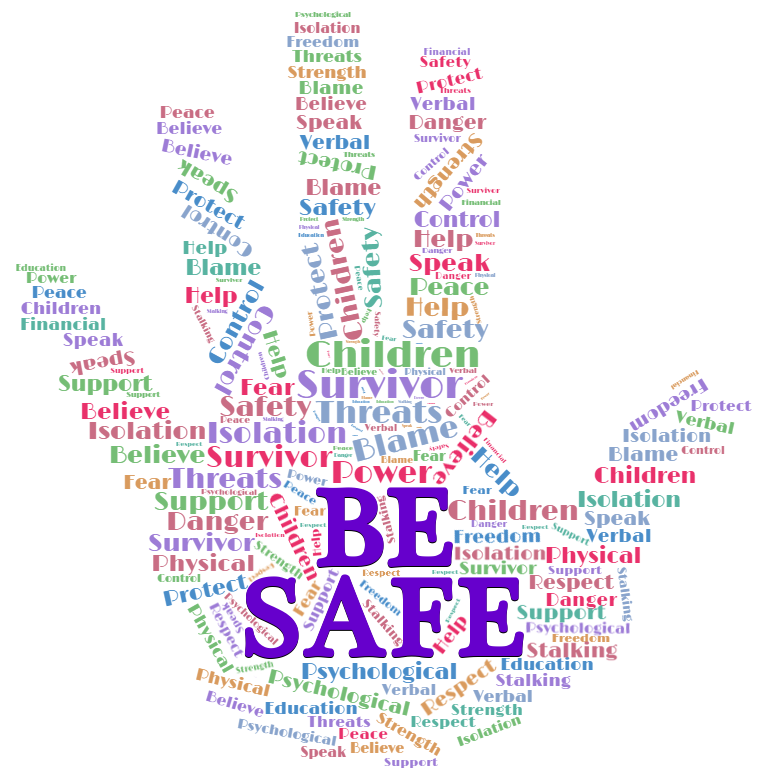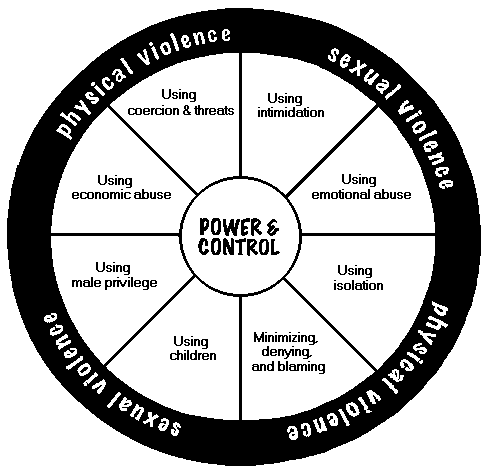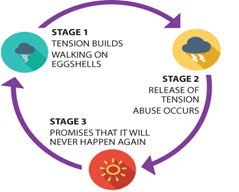
The BE SAFE Domestic Violence Victim Advocacy Program is located at the Erie County District Attorney’s Office inside Buffalo City Court, 50 Delaware Avenue, 4th Floor, Buffalo, New York 14202.
Staff can be reached by telephone at 716-858-4630 between 8:30 a.m. to 5:00 p.m. Monday through Friday.
The BE SAFE Program, led by Heather Summers, Director of Domestic Violence Survivor Services, specializes in advocacy within the criminal courts. Although advocates work within the Erie County District Attorney’s Office, BE SAFE is a separate and distinct advocacy program. Our victim advocates work with any survivor of domestic violence, regardless of race, age, gender or sexual orientation, and whether or not you have a criminal case.
Supportive Services
BE SAFE recognizes the impact of domestic violence trauma in an individual’s life. Our goal is to provide support, resources and safety planning to survivors of domestic or intimate partner violence. Our victim advocates provide services, including:
- Court accompaniment and advocacy
- Supportive counseling, crisis intervention and case management
- Individualized safety planning and risk assessment
- Information and referrals to various programs
- Act as a liaison between the client and Assistant District Attorney at your request
- General advocacy services for medical, housing, employment and financial needs
- Assistance with applications to the New York State Office of Victim Services and New York State Address Confidentiality Program
- Help with compiling, copying and distributing victim impact statements
- Assist with VINE program registration for offender release updates
- Bi-lingual, Spanish-speaking advocates and interpreters available
BE SAFE Brochure & Safety Plan (English)
BE SAFE Brochure & Safety Plan (Spanish)
PLEASE NOTE: Anyone can seek the help of a BE SAFE advocate.
You do not need to have a pending criminal case to access services. Walk-ins are welcome!
BE SAFE in the Community
BE SAFE provides free community outreach and training for professionals, law enforcement, Judges, and community members on a variety of topics related to domestic violence.
Frequently Asked Questions

What is Domestic Violence?
Domestic violence is a pattern of behavior and coercive control that may include physical, emotional, verbal, psychological, economic, financial, and/or sexual abuse perpetrated by one person to gain and maintain power and control over another within a family or intimate relationship. Domestic violence can occur between spouses, intimate partners, family members, and within dating relationships. It can occur within both heterosexual and LGBTQ+ relationships. It can happen to anyone, regardless of age, race, sex, education level, religion, sexual orientation or economic status.
How do I determine if I’m experiencing Domestic Violence?
The following checklist of signs and cues of abuse will not absolutely determine whether your relationship is abusive, but if one or more of these items apply, you may be at increased risk for ongoing violence.
Signs of an abusive partner include:
- Physical abuse and violence (pushes, slaps, chokes, punches, kicks, choking, strangulation, grabbing hair, uses weapons or threatens the use of weapons against you, etc.)
- Jealous, controlling or possessive behavior
- Verbal abuse (name calling, swearing, screaming, etc.)
- Isolation, holds you against your will and/or prevents access to school, work, etc.
- Blames others for their problems, does not take personal responsibility and/or minimizes their own actions
- Threatens self-harm or abuse towards children, pets and/or other loved ones
- Financial abuse (controls money, access to bank accounts, etc.)
- Stalking
- Destruction of property
- Sexual abuse or forced sexual activity
- Accusations of infidelity
- Deprivation of needs (sleep, nutrition, medication, etc.)
- Spiritual abuse (undermining faith or using faith to maintain power and control)
- Uses the children against you (threats to keep children from you or contact Child Protective Services, etc.)
- Makes you feel like you’re “walking on eggshells”
How does Domestic Violence affect children?
Children do more than simply witness abuse. Children may also:
- Play referee between parents
- Attempt to rescue an injured parent
- Try to deflect the abuser’s attention onto them
- Distract the abuser in some manner
- Attempt to physically intervene or defend the abused parent
- Take care of younger siblings during abuse
- May be forced to participate in the violence
- May be taken hostage during the incident
- Seek outside help (calling 911 or running to a neighbor’s house)
What is a Safety Plan?
A safety plan is a tool which enables victims of domestic abuse to assess their options and reduce their risk of further abuse. Leaving an abusive relationship can increase your risk and requires planning. If you feel unsafe at any time or want to discuss a safety plan, please contact our advocates for assistance.
Safety Net Project offers more information on stalking, technology and safety for survivors of domestic violence.
Abuse Can Happen to Anyone
Cycle of Entrapment
 Domestic violence may be difficult to recognize as abusive behaviors can be surrounded by periods of calm. The cycle of entrapment may give a victim hope that their partner/family member will change, but may lead to an escalation of abuse.
Domestic violence may be difficult to recognize as abusive behaviors can be surrounded by periods of calm. The cycle of entrapment may give a victim hope that their partner/family member will change, but may lead to an escalation of abuse.
Abuse of Older Individuals
Older adults can experience abuse by a partner or family member. Abuse or mistreatment may be a crime. If there is an emergency or immediate danger, call 911.
If you need protection or know someone who nay need help, please contact Adult Protective Services within the Erie County Department of Social Services at 716-858-6877 and/or the Center for Elder Law & Justice at 716-853-3087.
Abuse of Persons with Disabilities
An abuser may use their partner’s disability to cause then harm by withholding assistive devices or medication; or may mislead police or others by miscommunicating information. People with disabilities face risks such as: lack of transportation, interpreters, and housing options.
Abuse in LGBTQ+ Relationships
Intimate partner violence can occur in any relationship regardless of sexual orientation, identity or gender expression. Other signs of abuse among LGBTQ+ individuals can include: threats to expose your sexual orientation or gender identity, making you feel shamed about how you identify, alienating you from the LGBTQ+ community and preventing you from accessing hormone therapy treatment.
Abuse of Immigrant Survivors
Whether you are a documented or undocumented individual, everyone has the right to live free of abuse. Victims of domestic violence may feel trapped with their abuser because of their immigration status, language barriers, social isolation and/or a lack of financial resources. Our office can provide interpreters to help non-English speaking survivors understand their rights and access resources.
Abuse in Teen Dating Relationships
Teen dating abuse involves one individual maintaining power and control over another. Abusive tactics can be physical, emotional or sexual. Signs of an abusive dating relationship may include: excessive phone calls or text messages, pressure to have sex, acting jealous or possessive, harassment on social media and/or isolation from friends and family. Teens can obtain an Order of Protection through Family Court or by contacting law enforcement. Making this decision can be scary or intimidating, but our advocates can help victims of any age understand their options.
Criminal Justice Process
Why did the police make an arrest?
In order to make an arrest, police must determine if there is probable cause, or enough evidence that an crime has occurred.
New York State has mandatory arrest for certain domestic violence cases, which means that police must arrest the offender when a felony is committed or the offender violates an order of protection by either making contact with the victim despite a stay-away order or commits a family offense crime.
Should you receive a notice of a court date following the arrest of the offender, please call our victim advocates at 716-858-4630.
If the perpetrator left the scene and an arrest was NOT made, the police should give you a police report or warrant card. If you live in the City of Buffalo and would like to file criminal charges, contact the Family Justice Center SafeLine at 716-558-SAFE (7233).
Orders of Protection
An Order of Protection, or restraining order, is issued by the Judge naming you as the protected party. Although your name is on it, it is a court order and can only be changed by the Judge. There are two types of Orders of Protection:
- No Contact/Stay Away Order of Protection: orders the defendant to stay away from you and have no contact with you by phone, mail or third parties.
- No-Offensive Contact Order of Protection: the defendant can be near you, but must refrain from any harassing, threatening or physical behavior towards you.
Court Process
Advocates can assist you throughout each stage of the case against the offender. In addition to providing accompaniment to court proceedings, our victim advocates can help you understand the court process from arrest to sentence.
As a victim of a crime, you may be eligible for compensation through the New York State Office of Victim Services for certain expenses you have incurred as a result of the crime.
If you are involved in the criminal justice system, we understand that you may not be ready to proceed with criminal charges against the offender. Our advocates can help explain options to maintain your safety.
Family Court Options
As a victim of domestic or intimate partner violence, you also have the option of seeking an Order of Protection through Family Court. Organizations such as the Family Justice Center and NY Crime Victims Legal Help can provide more information on your civil legal options and rights as a victim.
The New York State Unified Court System provides additional information on forms and petitions for Family Court.
You can sign up for alerts regarding the service of a Family Court issued Order of Protection through the NY-Alert Order of Protection Notification System.
What if my abuser continues to violate my order of protection, harass and/or contact me?
Even after an arrest, it is very common for an offender to contact you (or attempt to contact you) in-person, by phone or through a third party. If the defendant violates an order of protection, call 911 immediately.
To further protect yourself:
- Change your phone number or screen your calls
- Document the date(s) and time(s) of the incident(s)
- After contacting the police, contact a BE SAFE advocate (716-858-4630) to alert the District Attorney's Office of the violation of the order of protection
- Share any evidence with the police and/or District Attorney's Office
Additional Resources
Child & Family Services Haven House
Erie County Sheriff’s Department
Erie County Coalition Against Family Violence
New York State Coalition on Elder Abuse
New York State Office for the Prevention of Domestic Violence
New York State Coalition Against Domestic Violence
Love is Respect (Abuse in Teen Dating Relationships)
The Erie County District Attorney’s Office is part of a collaborative with other non-residential Domestic Violence service providers who established a new crisis response plan to streamline domestic violence services in Erie County.
BE SAFE is a New York State approved non-residential provider of Domestic Violence services, and is prohibited from discrimination, harassment, and bullying in all its forms. Services are provided regardless of race, creed, color, national origin, sexual orientation, gender identity or expression, military status, sex, marital status, or disability.